I Have A Store C61
by MarineTLChapter 61 – What Did You Use to Do for Work Before?
Zhou Yimin stepped closer and saw that it was a box—53 centimeters long, 32 centimeters wide, and 23 centimeters high—locked shut with a padlock. Everyone’s eyes were fixed on it.
“Could there be treasure inside?”
“Maybe gold, that would be the best.”
“What are you dreaming about? Gold?” In the eyes of many Chinese people, gold had always been the most valuable. Its worth hadn’t changed since ancient times.
“Why not just pry it open and find out?”
…
Others might not have noticed anything unusual, but Zhou Yimin could tell at a glance that the box was not ordinary.
He quickly stopped the people who wanted to force it open.
“Don’t pry it. Who here knows how to pick a lock? Or just get the lock off without damaging the box—it looks like it might be worth a few yuan,” Zhou Yimin said.
As soon as the crowd heard that, they gave up the idea of breaking the box open.
A few yuan was no small amount to people in the countryside.
“Old Liu! Where’s Old Liu gone?” the old party secretary called out.
“Coming, coming!”
An old man squeezed his way through the crowd.
He pulled out a thin piece of metal, fiddled with the lock a bit, and it popped open.
Zhou Yimin was surprised and asked, “Elder, what did you do for work before?”
It really made one wonder if he had some kind of side job.
The old man scratched his head and laughed awkwardly. “Uncle Sixteen, I used to be a locksmith. But now, there’s no place for that kind of work anymore.”
Zhou Yimin: “…”
Well, damn! At his age, and he was still calling him Uncle Sixteen.
The locksmith trade had always existed. Even in the 21st century, locksmiths were still active in society. In fact, Zhou Yimin believed that locksmiths were among the most in-touch with modern trends.
Locks kept evolving. If you didn’t keep up, you couldn’t open them, and naturally, you’d be out of a job.
The lock on the box was now undone. Under everyone’s watchful eyes, Zhou Yimin lifted the lid. Inside was a collection of seals—countless of them, in varying sizes.
“Are they made of jade? Are they worth anything?” someone asked.
Though the villagers didn’t have much exposure to such things, they’d at least heard of jade.
The old party secretary, who had seen a bit more in his time, shook his head and said regretfully, “In the past, these would’ve been quite valuable. But not anymore.”
Back then, antiques and rare curios were playthings for nobles and officials, so of course they were valuable. But times had changed—people could hardly feed themselves now, who had time to play with antiques?
Besides, the government didn’t encourage it either.
The villagers all looked disappointed. They thought they’d found treasure—what a waste of their expressions.
But Zhou Yimin recognized where these seals came from.
In his previous life, he had accidentally learned about something called the Yuanyin Shoudie Seal Set.
It was said that for Emperor Qianlong’s 80th birthday, Grand Secretary Heshen of Wenhua Hall and Minister of Works Jin Jian selected 120 lines of imperial poetry containing the words “blessing” (fu) and “longevity” (shou), and had them engraved into seals. Among these, the set engraved with “longevity” became known as the Yuanyin Shoudie.
Three sets of these seals were crafted in total, each made from different materials, and presented to Emperor Qianlong in the names of Heshen and Jin Jian.
The seals featured knob carvings in the forms of landscapes, animals, flowers, and more. The bases came in rectangular, square, and oval shapes.
In other words, only three official sets of these seals existed.
But that was only what was on record. Given Heshen’s personality, how could he not have secretly made a few sets for his own enjoyment? Other officials likely did the same, commissioning private sets for fun.
In ancient times, the emperor was the trendsetter.
If the emperor played with something, the officials would follow suit. Then merchants and wealthy families would follow after them.
If Zhou Yimin wasn’t mistaken, these seals were carved from Tianhuang stone.
There was no need to explain the value of Tianhuang. In the past, there was a saying: “An ounce of Tianhuang is worth an ounce of gold.”
By modern times, one gram of Tianhuang could be worth tens of thousands of yuan—hundreds of times more valuable than gold. Especially when used to make antique art pieces like these, they could fetch astronomical prices at auction.
“They’re still worth something. The cultural relics store will buy them for three to five yuan a piece,” Zhou Yimin said.
He wasn’t lying. For example, the Beijing Cultural Relics Store, which was only established this year, bought relics at a few yuan each, depending on the item’s specific value. But very few pieces went for more than ten yuan. After all, even when the relics were sold, they only fetched eight or ten yuan each.
Relic shops were state-run businesses, overseen by experts who selected pieces they deemed sellable to stock in the stores. Most customers were foreigners, and the goal was to generate foreign currency.
Zhou Yimin knew this wasn’t even the lowest point yet.
In a few years, cultural relics would be even cheaper.
“Really?”
Everyone’s eyes lit up.
That whole box—so many seals! Even at just three yuan each, they could fetch a few hundred yuan in total. For Zhoujiazhuang, that would be a significant sum of money.
“Alright, stop dreaming. These little things—if the cultural relics store is willing to give one yuan each, that’s already pretty good. If the price goes up, they’re not worth it anymore. You guys don’t understand.
If you ask me, just give them to Yimin. Consider it paying him back for the seed money.
Yimin, what do you think?” the old party secretary said.
He’d been fretting over how to properly thank Zhou Yimin.
He told a small white lie to the villagers. Though really, it wasn’t that far from the truth. Bringing over a hundred seals to the relics store would almost certainly get the price driven down.
The brigade captain chimed in, “I think that’s fair.”
In their eyes, food was more important than a box of seals.
The other villagers thought about it and agreed the party secretary made sense. No one voiced any objections.
Besides, what was wrong with letting Yimin earn a bit?
Over this recent period, Yimin had done a lot for Zhoujiazhuang. The riverbed that was now being reclaimed had been his idea, and the school reopening had also been suggested by him.
Not to mention the whole sweet potato exchange.
Without him, the village might have starved to death.
All in all, giving the box to Zhou Yimin—no one objected. They were all genuinely willing.
Zhou Yimin thought it over and said, “Alright, here’s the plan. I’ll handle selling them. The extra money I make, I’ll use to buy food and stock the school canteen. That way, the village canteen won’t need to allocate grain to the school.”
He planned to buy them off the village at three yuan per piece, subtract the cost of seeds, and use the rest to buy grain.
This way, all the village children would benefit.
When the crowd heard this, they all cheered in approval.
They respected him from the bottom of their hearts. Truly, this was Yimin. Even when given an opportunity, he would never take advantage of the village.
(End of Chapter)

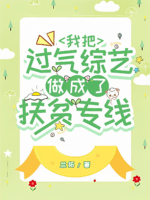
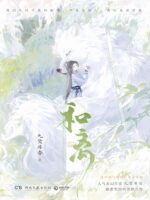
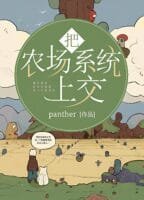

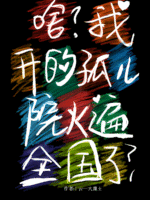
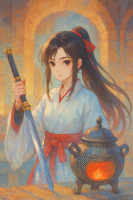
![Cannon Fodder Refuses to Be a Stepping Stone for His Cub [QT] Cover](https://marinetl.xyz/wp-content/uploads/2025/06/228114s_x16_drawing-143x200.png)
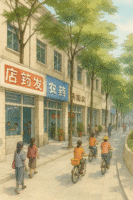
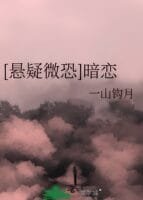
0 Comments